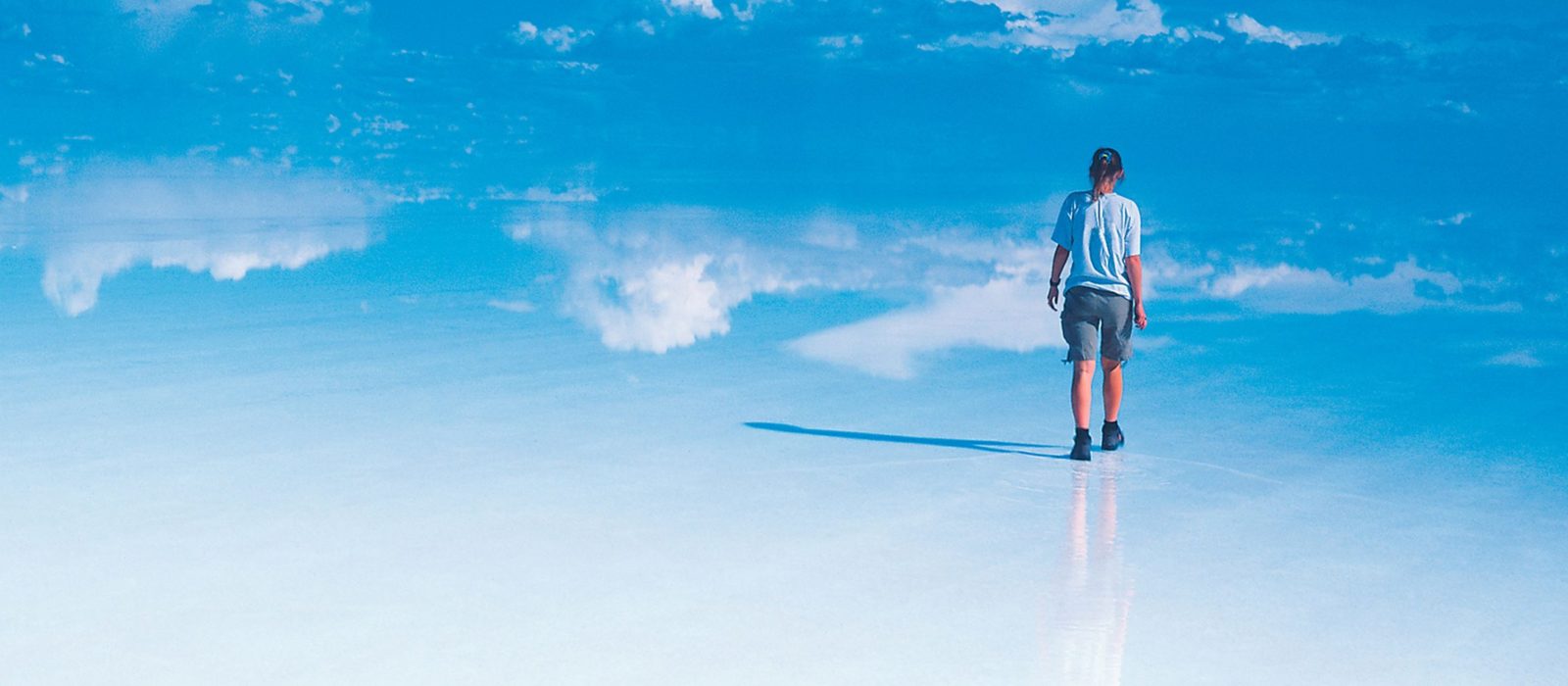Published on: October 21st, 2012
Last modified: December 28th, 2022
We've compiled our list of most frequently asked questions to help you get prepared before your big adventure to Bolivia. Please read through the questions, using the navigation bar on the left hand side of your page to move easily between the different sections.
Please note that requirements and advice can change so we do recommend you check in with your own travel insurer, doctor and relevant local embassies before embarking on your adventure.
Are there any entry requirements for Bolivia?
US and Chinese citizens do require visas for Bolivia. Australian, Canadian and most EU citizens do not require a visa.
US citizens can obtain their required visa in advance or on entry. On entry the visa will cost USD 160 cash and you must have the correct amount. It’s also very important that the banknotes you use are in pristine condition. In order to obtain you visa your passport must have at least 6 months validity, two consecutive blanks pages and you will need two passport photos, a visa form, copy of your itinerary, hotel confirmations from a Bolivian tour operator, your air ticket and a bank statement (or just an ATM machine voucher).
Chinese citizens can obtain their visa on arrival at USD 105 cash. All the above requirements for US citizens will also apply to Chinese citizens.
Australian, Canadian and most EU citizens will be granted a 30 day stay, which can be extended for a further 60 days if required.
We will confirm certain elements of your trip such as domestic flights, permits or train tickets using your current passport details. If a member of your party changes their name in their passport after booking (for example, through marriage or adoption) this could mean having to reissue important parts of the trip at an extra cost and subject to availability.
Please note that requirements can change and we recommend that our guests contact the local embassy in the country where you live for the most recent and up to date information.
Do I need travel insurance?
Yes, once your trip is confirmed it is essential that you take out comprehensive travel insurance to cover you in case anything unexpected happens.
We always recommend that our guests get the maximum level of coverage that you feel comfortable investing in. Read more about travel insurance for US travellers here and for travellers from other countries here.
Do I need to visit a travel doctor before my trip?
Yes, you should visit a travel doctor before your trip as they may recommend certain vaccinations or medications before or during travel. Some vaccines commonly recommended for travellers to Latin America include: Tetanus, Diphtheria, Polio, Typhoid, Hepatitis A, Hepatitis B, Rabies and Meningitis. There is a Malaria risk in some parts of Bolivia – it’s important to discuss your itinerary with your travel doctor.
Yellow fever vaccinations are recommended if you’re travelling to areas lower than 2,300 metres and east of the Andes. The vaccination is not necessary for travel to La Paz, Uyuni or anywhere else above 2,300m. You will need proof of vaccination to enter Bolivia if you’re travelling from a country with a high risk of Yellow Fever.
Some of Bolivia’s highlights are at high altitudes and it’s worth discussing altitude sickness with your doctor – there are some medications available. In general we recommend taking things very easy at altitude. Avoid alcohol, take small, regular meals and keep well hydrated – drinking water is extremely important.
What do I need to know about my regional flights?
Most flights you take in Bolivia will be on the national carrier, Boliviana de Aviación (BOA) where the checked luggage allowance is 20 kilograms per passenger. Hand luggage must not exceed 5 kilograms with maximum dimensions of 20 cm x 25cm x 30cm.
Please let us know if you have seat assignment preferences and we will notify the airlines. Please note that seat assignment is subject to change and always at the discretion of the airline. Our team on the ground will be able to check you in online 24 hours prior to your flight.
What will I receive from Jacada before I depart?
Travel pack
Before you head off on your adventure you will be sent a travel pack. The travel pack is full of great information and is also a beautiful keepsake. It is not necessary to travel with vouchers or confirmations on your trip but we do recommend having a printed copy of your travel itinerary to hand when you arrive into Bolivia.
Bon Voyage email
Around 2 weeks before you depart we will email you an electronic version of your travel pack including your domestic flight tickets. Once you’ve received this email your Travel Designer will reach out to arrange a time for you to talk on the phone to go over any last minute questions and talk you through the information we’ve sent over.
Do I need to bring the local currency?
We recommend bringing a small amount of the local currency (Bolivia Boliviano) with you if you can. If not, it’s best to bring some US Dollar bills, as these are the easiest currency to exchange. However it’s very important that the banknotes are new and in perfect condition. Large, 100 dollar bills can be hard to change.
ATMs are available in La Paz, but can be unreliable. In remote areas such as Uyuni it’s important to make sure you have enough cash with you as exchanging and finding ATMs can be hard.
Credit and debit cards are only accepted in larger hotels in the main hubs, fine dining restaurants or at larger airports – overall, we recommend relying on cash when travelling in Bolivia.
Can you tell me about tipping and etiquette in Bolivia?
Tipping is generally expected for tourists in Bolivia and it’s best to tip in the local currency rather than US dollars. If you’re on a trip with several guides and drivers, tip them individually. For this purpose, many people find travelling with a few envelopes to be useful. It can be tricky to break down big bills in Bolivia, so try and hang on to small denominations, which you can for tipping.
We would suggest adding 10-15% on top of your bill in restaurants. Hotel porters get around USD 1 to USD 2 per piece of luggage, a private guide on a full-day trip will get about USD 30 or USD 15 for a half-day tour and it’s about USD 10 for a private driver on a full-day trip.
What’s the weather like and how should I pack?
The climate in Bolivia changes throughout the year and temperatures can vary greatly at different altitudes. For this reason it’s a good idea to speak with your travel designer or concierge to work on a personalised packing list for your itinerary. However, most guests will probably experience a variation of warmer and colder temperatures whilst on a typical trip in Bolivia. Even when the temperatures are cold at altitude it’s important to remember that the sun is still very strong, so a good sunscreen is essential.
Here’s our general packing list, a good guide when choosing what to pack for a trip to Bolivia.
- Shorts or zip-off trousers
- Light cotton long sleeved top
- Light trekking trousers. Pick a fabric that will dry quickly.
- Sweater or warm top. This will help on cooler evenings.
- Waterproof or anorak
- Swimwear
- Synthetic layers. If you are visiting the salt flats you will need clothing for warm days that will also protect you from the cold at night. Synthetic fabrics are most effective. Also pack gloves, synthetic socks, synthetic or wool shirts and a fleece sweater.
- Outdoor supportive shoes
- Comfortable hiking shoes
- Flip flops/ sandals
- Sun cream and a wide-brimmed hat
- Day pack. This will be useful for taking on excursions
- Insect repellent
- Ziplock bags. These can be useful for keeping your belongings dry and protected from the weather
- Camera, lenses and spare batteries
- Binoculars
- Flashlight/headlamp and batteries
Almost all of the properties in Bolivia will offer a laundry service at an extra cost. You might find some pricing to be quite expensive so please do check the costs with reception before sending your items to be washed.
Should I make restaurant reservations?
We highly recommend that you make restaurant reservations in advance of your trip. Once your trip is confirmed you will be introduced to your concierge who will be able to assist you in not only making the reservations but also making recommendations based on your preferences.
What’s the transport like?
We only recommend taking transfers arranged by Jacada travel, the team on the ground, your hotel or a restaurant we’ve reserved for you.
How can I keep connected on my trip?
Plugs and power
For Bolivia there are two associated plug types, types A and C. Plug type A is the plug which has two flat parallel pins and plug type C is the plug which has two round pins. Bolivia operates on a 230V supply voltage and 50Hz.
Wifi and Internet
Wifi is common in most hotels and lodges in Bolivia. In remote areas the connection can be patchy and is not always available throughout the entire property, sometimes only being available in the common areas or in the rooms. There are some exceptions, so if this sort of connectivity is very important to you please discuss this with your travel designer or concierge.
Remote areas
Cell phone reception and roaming is not always possible in some remote areas so please bear this in mind when planning communications while on your trip.





